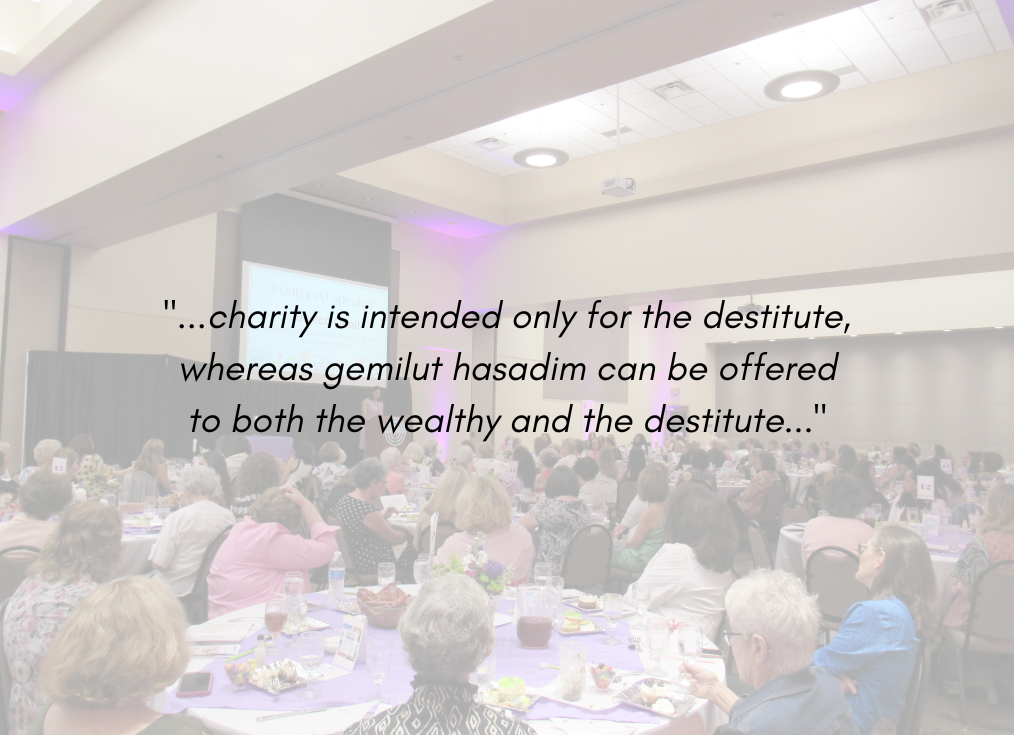Gemilut Hasadim

May 25, 2023
As I sit at my computer each week, ready to delve into the assigned Torah text, my intent is to always identify at least one lesson, idea, and/or value, which we can pursue going into the weekend or hopefully even internalize for a little longer that will bring us together as a community. This week, however, given the timing of the holiday of Shavuot (“the festival of weeks”), starting this evening and running through Shabbat, how could I not expand my usual interest in only Torah text and instead also focus on the Canonical writing in the Book of Ruth (the traditional story read on this upcoming holiday).
The Book of Ruth is set in the time of harvest and highlights the value of gemilut hasadim (“acts of loving-kindness”). There are of course many other ethical teachings to be gleaned from the story, including the authenticity of the book’s namesake and her conversion to Judaism, the Leverite marriage, the lineage to King David, and many more valuable lessons. In fact, there are so many parallels between the characters’ struggles in the book and their relationship with Gd’s laws that ultimately this story was recognized by the rabbis as best representing the reasons we celebrate Shavuot, which is to rejoice in the receiving of the Torah.
In Midrash Ruth Rabbah 2:14 Rabbi Ze’ira asks, “For what purpose was [the scroll of Ruth] written?” Which Ze’ira justifies asking because “This scroll tells us nothing of purity or impurity, of prohibition or permission.” Ultimately Ze’ira concludes his thoughts by explaining that the scroll’s purpose is to “teach us how great is the reward of those who perform acts of loving-kindness.”
In fact, the Talmud goes further by explaining that gemilut hasadim possesses an even higher level of care for those in need than tzedakah (“charity”). It explains that charity is intended only for the destitute, whereas gemilut hasadim can be offered to both the wealthy and the destitute; charity is for the living, while gemilut hasadim can be offered to both the living or the dead (for more about acts of loving-kindness for the dead click here); and, charity is given through material possessions, while gemilut hasadim can be given through money or direct assistance.
This past week 150 women representing the diverse Jewish San Antonio community gathered to celebrate the Jewish Federation’s 2023 Women’s Philanthropy Spring Luncheon. Along with recognizing the incredible generosity and leadership of the many in the room, as well as others who were unable to attend and even others who have sadly passed over the years, this event highlighted the investment that this community has made and continues to make in our community. In fact, the keynote speaker, Jessica Chait, shared her personal journey as a young Jewish teen who directly benefited from this community’s investment in her through today holding the role of Managing Director of Food Programs and Policy at Met Council, the largest Kosher food pantry in the world!
But it was how Jessica concluded her words to the audience that best summarized why this group of diverse Jewish women were in the room together that punctuated her message; that “The critical role Federation plays has always been clear to me – and while it is often seen as counter cultural these days – Federation is about being funded by the whole community and serving the whole community and leveraging the diversity and strength of that community to nurture the opportunities and respond to the crises that lay before us. But they can only do that with support from each of you.”
May we too take the message of the Shavuot holiday, validated by the proof of how our community’s investment in community is creating meaningful change for our future. Charity and tzedakah are critically important, but our gemilut hasadim and acts of loving-kindness are how we will be…
STRONGER TOGETHER.
Shabbat Shalom,
#StrongerTogether #JFSA

